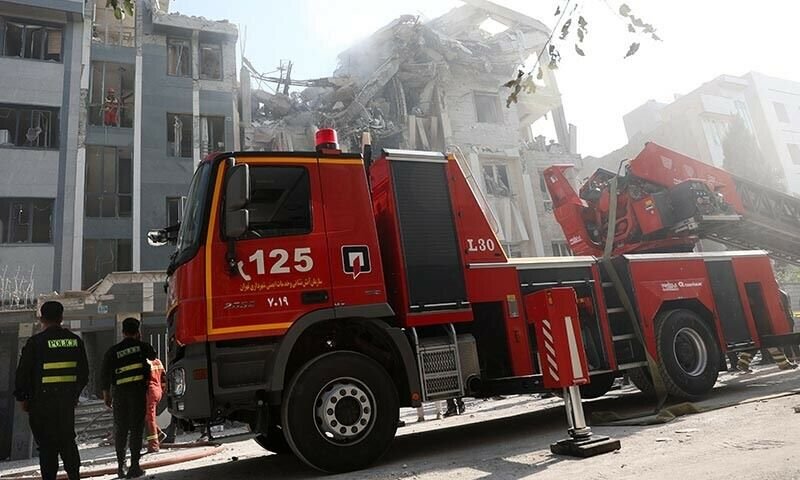Tehran (TDI): Tensions in the Middle East soared on Friday after Israel launched a sweeping military operation targeting Iran’s nuclear facilities, missile production centers, and senior military officials. The Israeli government described the offensive as the first phase of a broader effort to neutralize what it sees as a growing existential threat from Tehran.
Loud explosions were reported across several Iranian cities, including at the Natanz nuclear site, widely known as a key hub in Iran’s uranium enrichment program. Iranian news outlets confirmed the blasts, while Israel said it was bracing for possible retaliation and had declared a state of emergency.
According to Israel’s military, roughly 100 drones were launched by Iran toward Israeli airspace in response. Brigadier General Effie Defrin stated that Israeli air defense systems were actively engaging the UAVs. He also revealed that about 200 fighter jets had taken part in air raids on nearly 100 high-value targets across Iran.
One of the most notable developments was the reported death of General Hossein Salami, head of Iran’s Islamic Revolutionary Guard Corps. Iranian state media also reported that the IRGC headquarters in Tehran was hit. Civilian casualties were also mentioned, with reports saying several children died when residential buildings were struck in the capital.
Read More: US Pulls Some Personnel from Mideast Amid Iran Tensions
Prime Minister Benjamin Netanyahu addressed the nation in a video statement, announcing the launch of Operation Rising Lion, which he described as an effort to push back against Iran’s nuclear advances. “We are at a critical turning point,” he said. “This mission will not stop until we are confident the Iranian threat has been neutralized.”
Iran’s Supreme Leader Ayatollah Ali Khamenei condemned the attacks, accusing Israel of committing a “bloody crime” and vowing severe consequences. “They will pay a bitter price,” he warned in a public statement.
Israeli officials claimed that Iran had accumulated enough enriched uranium to potentially build 15 nuclear weapons in a short time. In addition to airstrikes, Israel reportedly carried out sabotage operations inside Iran, aimed at missile depots and air defense systems, according to a senior official quoted by Axios.
Iranian media reported the deaths of two top nuclear scientists Fereydoun Abbasi and Mohammad Mehdi Tehranchi during attacks in Tehran. The targeting of such high-level figures has raised alarm about the scale and scope of Israel’s operation.
Meanwhile, Tel Aviv’s Ben Gurion Airport was shut down, and the Israeli military placed its air defense units on high alert. Defense Minister Israel Katz warned the public to prepare for incoming attacks. “A response from Iran is expected soon,” he said.
General Eyal Zamir, Israel’s military chief, said that thousands of reserve soldiers had been mobilized. “This is a campaign unlike any we’ve seen before,” he said. “Our enemy seeks our destruction. We are acting to stop it.”
Israeli Foreign Minister Gideon Saar was reportedly making urgent calls to counterparts around the world to explain the motivations behind the strikes and to prevent further regional fallout.
Read More: Iran Sees Nuclear Deal With US ‘Within Reach’
US Secretary of State Marco Rubio said that the United States had no role in the military operation and warned Tehran not to lash out at American assets or personnel in the region. “Our forces are on alert, but we are not part of this mission,” he said.
As the situation evolves, both regional and global powers are on edge, concerned that this latest escalation could lead to a wider conflict in an already volatile part of the world.
Farkhund Yousafzai is an Associate Editor at The Diplomatic Insight.



